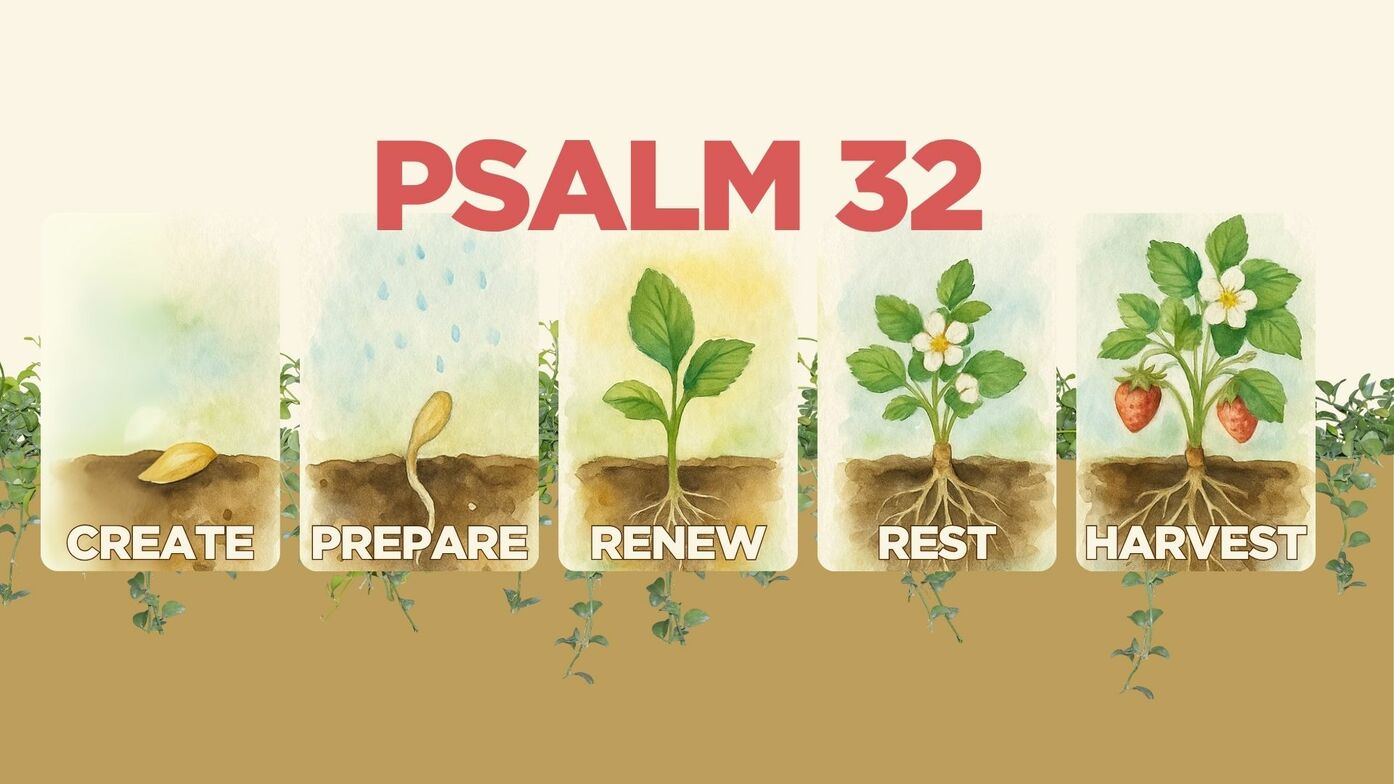
The sermon explores foundational Christian themes centered around creation, sin, forgiveness, and gratitude, drawing heavily from Psalm 32 and the early chapters of Genesis. The preacher, Tommy, serves as a substitute and introduces the congregation to a year-long journey through the Bible, emphasizing the importance of reading scripture together and engaging with resources like Eugene Peterson’s Eat This Book. The sermon begins by highlighting the dual worship services and the church’s ongoing Bible reading program.
The central message unfolds around Psalm 32’s opening verses, which celebrate the joy of forgiveness—being relieved of sin and deceit. Tommy contrasts this biblical joy with societal views where forgiveness is often stigmatized as an admission of guilt, explaining that Christian faith calls believers to confess sin openly as a path to grace, not shame. This confession interrupts everyday life and challenges societal norms that prioritize hiding faults and avoiding accountability.
Tommy then transitions to the biblical story of creation from Genesis chapters 1-3, presenting creation as an ordered, purposeful act by God, who brings light, life, and humanity into existence with a rhythmic harmony. Humans are uniquely made in God’s image and given stewardship over creation, highlighting both dignity and responsibility. The sermon notes the beauty of the natural world, drawing on personal experiences like an Alaskan cruise to connect the biblical account with real-world awe.
However, the sermon quickly moves to the fall—the introduction of sin—through the narrative of Adam, Eve, and the serpent. The serpent’s deceit tempts Eve to disobey God’s command, resulting in the first human sin, which ushers shame, fear, and broken relationship with God. The preacher reflects on contemporary distractions and consumerist temptations that echo the serpent’s “hissing,” leading people away from God’s provision and into greed and idolatry.
The consequences of sin are described through the expulsion from Eden and the subsequent story of Cain and Abel, where sin leads to the first murder. Tommy emphasizes that sin is internal, not just external temptation, and that God continually invites humanity to turn away from sin and toward redemption.
The sermon closes with a call to reject the prevailing “gods of productivity” and greed that dominate modern culture, urging believers instead to embrace thankfulness as the antidote to sin’s poison. Drawing from Colossians, Tommy highlights the role of Christ’s peace, gratitude, and communal worship as transformative forces, culminating in the Eucharist—a symbolic act of thanksgiving and grace. The message invites the congregation to live in the rhythm of creation, confession, forgiveness, and renewal, anchored in God’s love.

